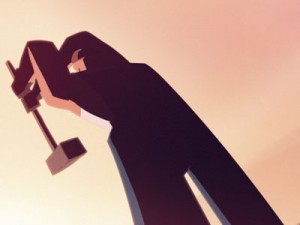 According to the National Institute on Drug Abuse, people in their late teens and early 20’s use more drugs than any other demographic. Even more surprising is the fact that drug use is increasing among those 50 and older. In 2012, a little over 23 million people needed to be treated for an addiction to drugs or alcohol, but only one percent got treatment. This shows a wide gap between people who have an addiction and people who get treatment for it.
According to the National Institute on Drug Abuse, people in their late teens and early 20’s use more drugs than any other demographic. Even more surprising is the fact that drug use is increasing among those 50 and older. In 2012, a little over 23 million people needed to be treated for an addiction to drugs or alcohol, but only one percent got treatment. This shows a wide gap between people who have an addiction and people who get treatment for it.
The National Survey on Drug Use and Health conducted a 12 month study in 2012. The study showed that 5.2 percent of adult males had a major depressive episode.
Depression can lead to drug abuse and addiction. It’s important to recognize the symptoms of both addiction and depression in yourself and others. This knowledge can save lives.
Signs of Depression
While all of us feel depressed sometimes, these moments are usually temporary. For example, you may feel depressed because a loved one died. That is normal. Ongoing depression depression lasting for more than two weeks could be a sign of major or clinical depression.
Other signs of depression include:
- Anhedonia, or the loss of interest in things you once used to enjoy, like sex, sports or other hobbies
- Appetite increase or decrease (regularly eating much more or less than you normally would).
- Can’t concentrate or focus
- Extreme weight loss or gain in a short span of time
- Feeling worthless, guilty, helpless, hopeless, pessimistic, sad, irritable, empty, or anxious persistently
- Lack of energy
- Restlessness
- Sleeping problems (either sleeping too much or too little)
- Recurring thoughts or conversations about suicide or death
If left untreated, depression can lead to suicide. If any of the symptoms mentioned above get worse, we urge you or your friend to seek help. Suicide is beyond devastating for everyone involved. It can leave your loved ones in emotional turmoil, and with the burden of having to make burdensome decisions after you’re gone.
Signs of Addiction
Merriam Webster Dictionary defines addiction as “a strong and harmful need to regularly have something (such as a drug) or do something (such as gamble); compulsive need for and use of a habit forming substance (as heroin, nicotine, or alcohol) characterized by tolerance and by well defined physiological symptoms upon withdrawal; broadly : persistent compulsive use of a substance known by the user to be harmful.”
In simpler terms, addiction is something that you need to do even if you know it’s harming you and others around you. If you don’t do it you go through withdrawal. All of the signs of addiction factually back this definition. If you answer yes to any of these questions, you or someone you know may have an addiction:
- Do you feel as if you can’t stop?
- Have you tried to stop but found that you couldn’t?
- When you tried to stop, did you have any of the following symptoms of withdrawal: moodiness, cravings, sweating profusely, bad temper, inability to focus, anger, bitter, seizures, feeling depressed or resentment?
- Have you been diagnosed with a serious medical condition as a result of your activity, but continue to indulge in it? (Example: You have cancer because you smoke, but you keep smoking anyway.)
- Have you sacrificed your social obligations because they won’t accommodate your habit? (Example: You won’t go to a party because they won’t have alcohol there.)
- Do you feel the need to constantly have a stock available?
- If you run out, will you make major financial sacrifices in order to indulge in your habit? (Example: You take money earmarked for food or a bill, and use it for your habit instead.)
- Do you need your habit to deal with your problems? (Example: I can’t handle this right now. I need a cigarette.)
- Do you take unnecessary risks in order to keep your habit? (Example: Sleeping with someone or doing illegal “favors” to obtain drugs.)
- Do you have stashes hidden around your home, “just in case”?
- Have you given up on important things to indulge in your habit, like relationships
- and hobbies?
If you find that you do have an addiction, your next step should be to seek professional help. One of the best options is to enroll in a treatment facility that specializes in your specific addiction. If you are addicted to heroine, you can enroll in a treatment facility for that. A heroin addiction treatment facility will know not only about the drug and what it does to your body, but also its effects on you, your life and your health. Instead of a general 12 step program, you will get addiction treatment that is tailored to your needs and situation.
You are not alone. There are millions of other people who have been where you are now. As the saying goes, “No man is an island.” Don’t let your pride get in the way. Get help. You can save your life, or the life of someone you love.